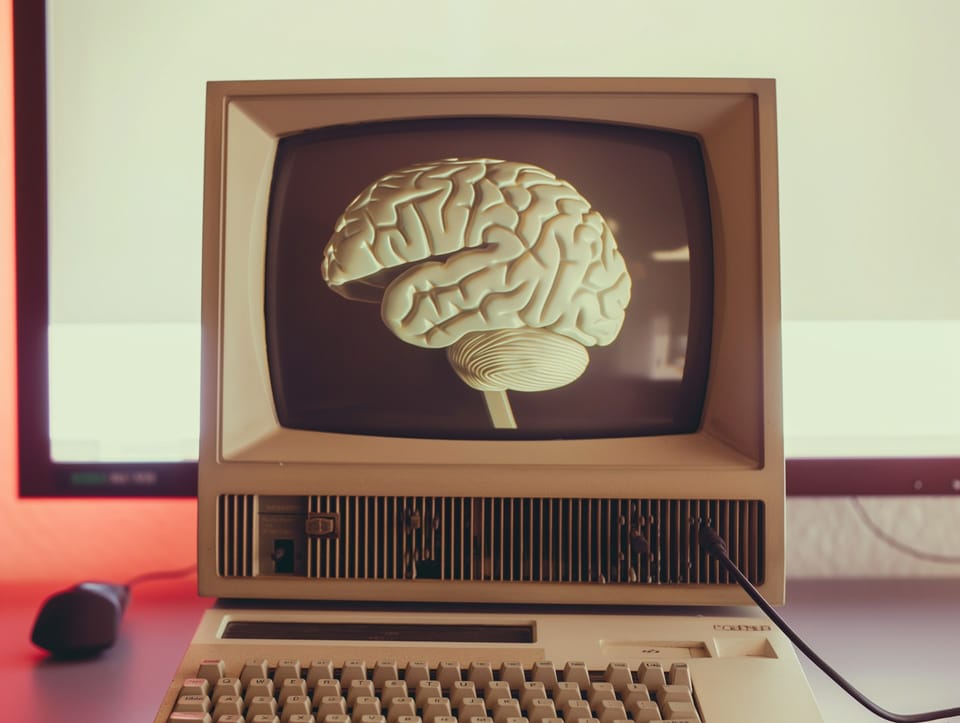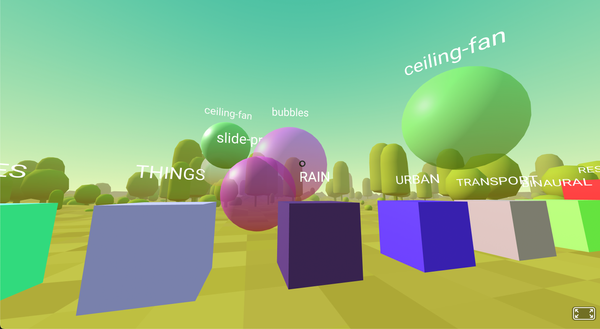The Dangers of Digital Self-Diagnosis: Why AI and Internet Searches Can't Replace Medical Professionals
Why People Should Not Use AI or the Internet to Diagnose Their Medical Conditions: A Comprehensive Analysis
Table of Content
In an era of digital information overload, many individuals are turning to the internet and AI-powered tools for self-diagnosis of medical conditions. While these resources offer quick and easy access to health information, from minor ailments to complex disorders, they come with significant risks. Self-diagnosis through AI or online platforms can lead to severe consequences for both physical and mental health.
This article delves into the pitfalls of using AI and internet resources for medical self-diagnosis. We'll examine why this approach is not only unreliable but potentially hazardous, the problems it generates, and emphasize the importance of seeking professional medical advice. By exploring these issues, we aim to highlight why consulting a qualified healthcare provider remains the safest and most effective way to address health concerns.
Understanding the Trend of Self-Diagnosis: Why Are People Turning to the Internet?
In today's digital age, the internet has become a go-to source for people seeking information about their health concerns. The easy access to vast amounts of medical information online has made it increasingly tempting for individuals to attempt self-diagnosis. This trend is fueled by various factors, including the convenience of online resources and the widespread availability of health-related websites and apps.
Let's explore in detail why more and more people are relying on the internet to diagnose their medical conditions:
- Convenience and Immediate Access: The internet offers instant gratification when it comes to health information. Instead of waiting days or weeks for a doctor's appointment, people can quickly search their symptoms online and get immediate results. This speed and ease of access are particularly appealing in today's fast-paced world where time is often at a premium.
- Cost Considerations: Healthcare costs can be a significant burden, especially in countries without universal healthcare systems. Many individuals turn to online resources as a way to avoid potentially expensive medical bills. They might hope to find a simple explanation or solution for their symptoms without incurring the cost of a doctor's visit or medical tests.
- Anxiety and Fear of Serious Diagnoses: Some people use the internet as a buffer against potentially bad news. They might believe that discovering information about their symptoms online will help them mentally prepare for a doctor's diagnosis. This approach can sometimes provide a false sense of control over their health situation.
- Preliminary Research and Preparation: Many individuals use online resources as a starting point before consulting a healthcare professional. They may feel more prepared and informed when they eventually see a doctor, believing this will lead to a more productive consultation. This preparation can sometimes help patients articulate their symptoms more clearly or ask more informed questions.
- Growing Trust in Technology: With rapid advancements in artificial intelligence and machine learning, some people have developed a strong faith in technology's ability to diagnose medical conditions. They might believe that AI-powered symptom checkers or health apps can provide accurate diagnoses comparable to those of human doctors.
- Desire for Privacy: Some health issues can be embarrassing or sensitive, leading individuals to seek information online rather than discussing their concerns face-to-face with a healthcare provider. The anonymity of the internet allows people to research symptoms without feeling judged or uncomfortable.
- Empowerment and Health Literacy: Access to medical information online can make people feel more empowered about their health. They may believe that by researching their symptoms, they are taking an active role in their healthcare and becoming more health-literate.
While these reasons might seem logical and beneficial on the surface, it's crucial to understand that they can lead to significant risks. Self-diagnosis through online resources often lacks the nuanced understanding that comes with medical training and experience.
It can result in misdiagnosis, unnecessary anxiety, or delays in seeking proper medical attention for serious conditions. Despite the allure of online health information, it's always advisable to consult with qualified healthcare professionals for accurate diagnosis and appropriate treatment.
The Problems with Self-Diagnosis Through AI and the Internet
1. Misinterpretation of Symptoms
One of the most significant issues with using the internet or AI for medical diagnosis is the misinterpretation of symptoms. Symptoms like headaches, fatigue, or a sore throat can be signs of a minor issue like a cold or something more severe like meningitis or cancer. When individuals try to match their symptoms to those found online, they may either underestimate or overestimate the severity of their condition.
Case Scenario:
John, a 35-year-old office worker, developed a persistent cough. He searched for his symptoms online and found that it could either be caused by a common cold or lung cancer. Although he was just experiencing allergies, the overwhelming information about cancer caused him severe anxiety. John spent weeks worrying unnecessarily before finally visiting a doctor, who confirmed his condition was non-threatening.
Consequence: Misinterpreting symptoms can lead to unnecessary stress, anxiety, and in some cases, dangerous delays in receiving appropriate care.
2. The Problem of Self-Medication
Another major consequence of relying on online medical information is the potential for self-medication. Many online sources recommend over-the-counter medications or home remedies based on symptoms, without considering a person’s medical history, allergies, or other medications they may be taking. This can lead to dangerous drug interactions, under-treatment of serious conditions, or even overdosing.
Case Scenario:
Sara, a 28-year-old mother, experienced a mild fever and muscle aches. After looking up her symptoms online, she decided to take a higher-than-recommended dose of ibuprofen, assuming it would help alleviate her discomfort. Unbeknownst to Sara, she has a mild kidney condition that the excessive use of ibuprofen worsened, leading to complications that required hospitalization.
Consequence: Self-medication based on internet information can result in harmful side effects, worsening of conditions, or even life-threatening drug interactions.
3. Incomplete or Inaccurate Information
AI-driven medical tools and online symptom checkers often provide incomplete or overly general information. These tools usually don’t account for complex medical histories, pre-existing conditions, or genetic factors that may affect a diagnosis. In some cases, they may even present outdated information, leading people to believe they have conditions they do not or miss critical signs of serious illnesses.
Case Scenario:
James, a 50-year-old man, began experiencing chest pain and nausea. After searching his symptoms on various AI-driven health apps and websites, he found that the most likely cause was indigestion. However, his symptoms were actually indicative of an impending heart attack. Relying on the internet's suggestions delayed his trip to the emergency room, putting his life at serious risk.
Consequence: Incomplete or incorrect information can delay proper treatment and lead to severe health outcomes.
4. Heightened Health Anxiety (Cyberchondria)
The term “cyberchondria” refers to the excessive searching of medical information online, which can heighten anxiety. For individuals prone to anxiety, searching for symptoms often leads to worst-case scenarios like terminal illnesses, even if their symptoms are mild. The constant influx of dire information can spiral into a state of panic, causing unnecessary emotional distress.
Case Scenario:
Emily, a 30-year-old, had been experiencing mild headaches for weeks. After spending hours on symptom checkers and medical forums, she became convinced that she had a brain tumor. This belief caused her immense emotional distress and impacted her daily life, despite multiple doctors reassuring her that she was healthy.
Consequence: Excessive use of online resources to diagnose oneself can exacerbate health anxiety and create a vicious cycle of stress and fear.
5. Overlooking the Importance of Medical Tests
AI and online symptom checkers rely on surface-level information: the symptoms you type in. However, they lack access to your medical history, lab results, or physical exams that are critical for making an accurate diagnosis. Blood tests, MRIs, biopsies, and other diagnostic tools play a crucial role in identifying the root cause of symptoms. Online tools simply can’t replace these methods.
Case Scenario:
Marcus, a 45-year-old man, noticed blood in his stool. Instead of visiting a doctor, he used online resources and concluded he had hemorrhoids. In reality, he was developing colorectal cancer, a condition that could have been detected early with a colonoscopy. By the time he saw a doctor, his condition had progressed.
Consequence: Skipping professional medical tests can result in a missed or delayed diagnosis, potentially leading to life-threatening conditions being overlooked.
Real-Life Online Cases and the Dangers of Self-Diagnosis
Several documented cases show how the internet has led individuals to make poor medical decisions. Here are a few scenarios that emphasize the risks of self-diagnosis:
- Case 1: The Dangers of WebMDA study conducted by Harvard Medical School found that online symptom checkers, such as WebMD, provide correct diagnoses only about 34% of the time. This figure illustrates how inaccurate or incomplete online medical tools can be.
- Case 2: Social Media MisinformationSocial media platforms have been riddled with misinformation regarding home remedies and treatments. During the COVID-19 pandemic, many people attempted to treat symptoms at home using unverified remedies, which in some cases resulted in severe complications.
Why People Should Always Consult Doctors for Medical Diagnoses
- Doctors Are Trained to Understand Complexities: Medical professionals spend years in training to learn about the human body, diseases, treatments, and diagnostics. They are equipped to consider factors like medical history, age, lifestyle, and genetics—something online tools cannot do.
- Access to Medical Testing: Doctors can order diagnostic tests that are essential to identifying the root cause of symptoms. A headache could be anything from dehydration to a brain tumor, but without proper testing, guessing is dangerous.
- Customized Treatment Plans: Physicians create personalized treatment plans based on each individual’s specific needs. AI-driven tools may suggest generic treatments that don’t take into account other conditions or medications, which can result in complications.
- Ethical and Legal Responsibility: Doctors are held accountable for their diagnoses and treatments, ensuring that they provide the best care possible. AI tools do not have legal or ethical obligations, meaning there’s no accountability if something goes wrong.
Conclusion: Why Trusting Medical Professionals Is Critical
In our digital age, where information is just a click away, it's tempting to turn to self-diagnosis.
Yet, AI tools and online symptom checkers pale in comparison to the expertise, training, and comprehensive approach of licensed medical professionals. The risks of misdiagnosis, unwarranted anxiety, and potentially harmful self-medication far outweigh the apparent convenience of internet-based solutions.
When it comes to your health, it's always prudent to err on the side of caution by consulting a doctor. Only they can provide accurate diagnoses and guide you towards appropriate treatment.
While the internet can serve as a valuable resource for health education, it should never substitute professional medical advice. Entrust your health to the experts—after all, your life may depend on it.










